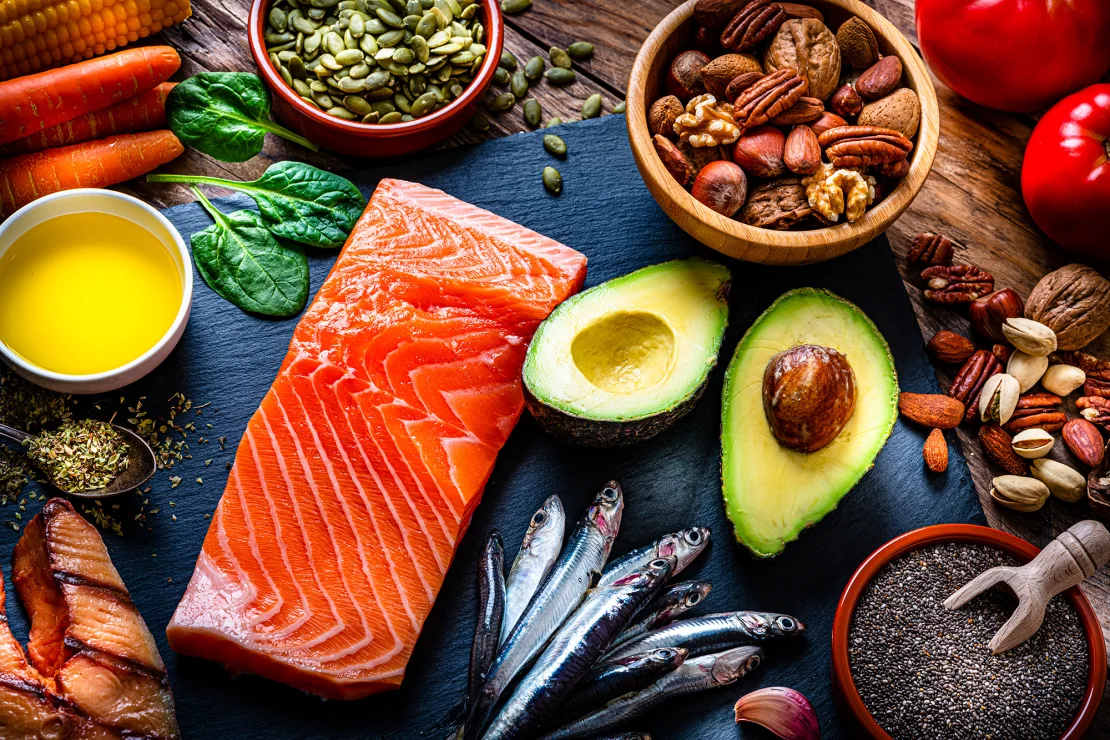Eating enough healthy fats is great for brain and heart health, but new research has possibly provided even more evidence for adding them — particularly omega-3s — to your diet.
“We found that a higher omega-6 to omega-3 ratio is associated with a greater risk of dying,” said Yuchen Zhang, lead author of the April study published in the journal eLife, in a news release. Zhang is a doctoral student in the department of epidemiology and biostatistics at the University of Georgia’s College of Public Health.
Omega-3 fatty acids are naturally found in foods including fish — especially fatty fish such as salmon, tuna and sardines — as well as flaxseed, walnuts, chia seeds and in dietary supplements such as fish oil.

The three main omega-3 fatty acids are alpha-linolenic acid, or ALA; eicosapentaenoic acid, or EPA; and docosahexaenoic acid, known as DHA, according to the National Institutes of Health. The body must obtain all three from foods, and omega-3s contribute to the health of the heart, blood vessels, lungs, immune system and endocrine system.
Foods high in omega-6 fatty acids, on the other hand, include nuts, seeds, corn and soy — and the oils and preservatives produced from these foods, the authors said. Linoleic acid is the most common omega-6 fatty acid.
“There is some evidence to suggest that the high omega-6 to omega-3 fats ratio typical of Western diets — 20:1 or even higher, compared to an estimated 1:1 during most of human evolution — contributes to many chronic diseases, including cardiovascular disease, cancer and autoimmune disorders,” Zhang said.
But the results of past studies have been mixed, she added, and few have investigated the role of an imbalance in mortality. Also, accurately measuring fatty acid intake is difficult, partly due to reliance on participants’ own recollections of their dietary intake.
Zhang and the other researchers looked into the associations between the omega-3/omega-6 ratio in blood plasma — a more objective measure — and death from any cause and specifically from cancer or cardiovascular disease, the top two leading causes of death worldwide.
They used data from 85,425 people who had participated in the UK Biobank study, which has followed the health outcomes of more than half a million people between ages 40 and 69 in the United Kingdom for at least a decade.
Participants, whose plasma samples were collected between 2007 and 2010, had answered questionnaires about their diet, including whether they took fish oil supplements.
After nearly 13 years of follow-up, the authors found participants with the highest ratios of omega-6 to omega-3 were 26% more likely to die early from any cause, 14% more likely to die from cancer and 31% more likely to die from heart disease than those with the lowest ratios. Considered individually, both high levels of omega-6 and omega-3 were linked with a lower risk of premature death. But the protective effects of omega-3 were greater, likely explaining “why having a high ratio of omega-6s to omega-3s was linked to harm,” the authors said.
Despite the findings, the study is “only one ‘snapshot’ in time of biomarkers and dietary intake of omega 3s and 6s. This is correlation, not causation,” said Dr. Lauren R. Sastre, director of the Farm to Clinic Program and assistant professor in the department of nutrition science at East Carolina University, via email. Sastre wasn’t involved in the study.








